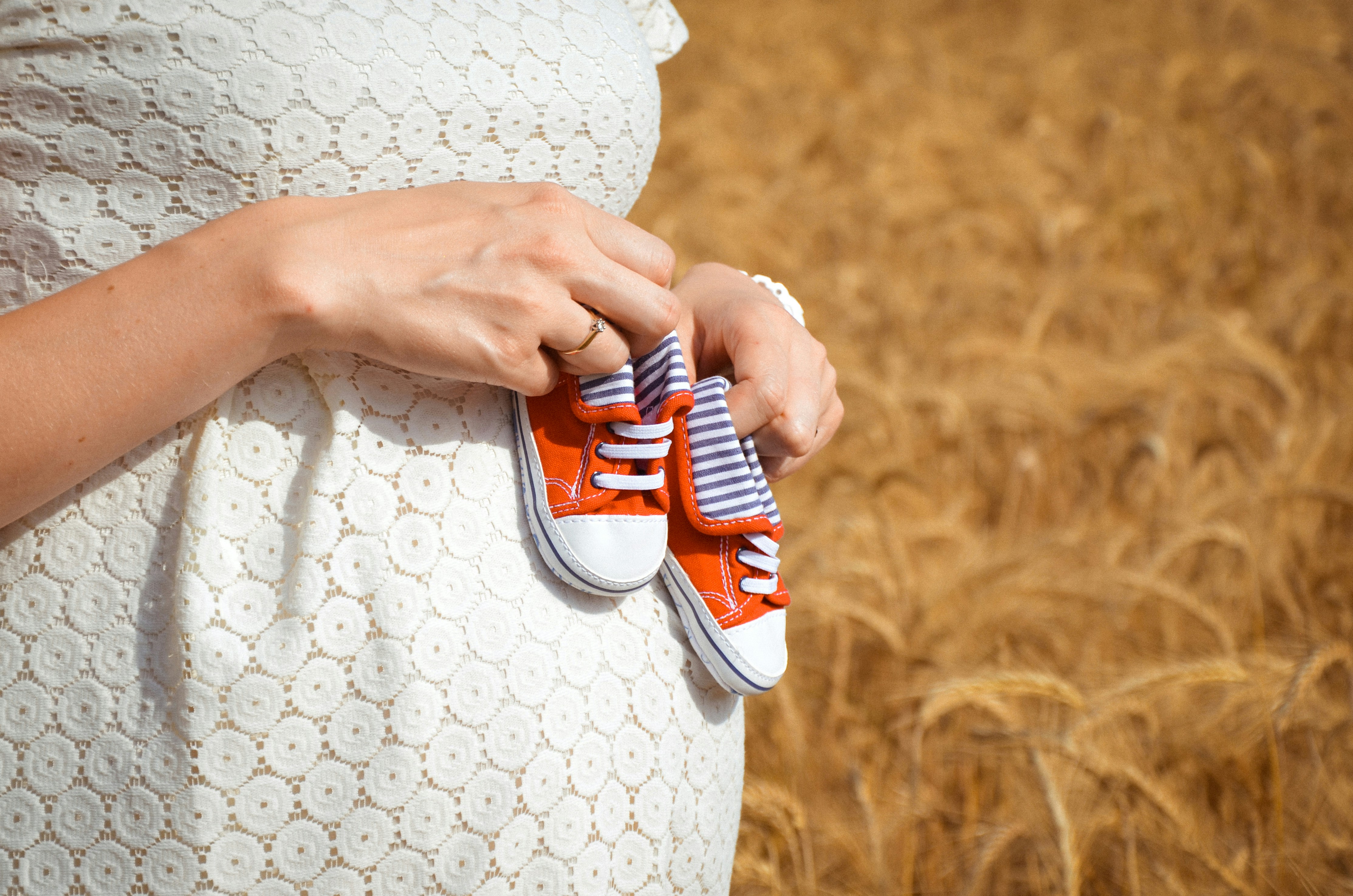Little Kicks, Big Connections
Feeling your baby move isn’t just reassuring – it’s a chance to bond.
- Patterns you’ll learn to love – Over time you’ll notice a daily rhythm, perhaps after meals or when you’re relaxing in the evening.
- A moment to pause – Rest a hand on your bump, whisper a hello, or share a smile. These small rituals help you feel closer.
- Imagining their personality – Is this baby a gentle wiggler or a late-night gymnast? Each kick invites you to picture the tiny person inside.
What the Science Says
Research shows that the more parents notice and respond to foetal movement, the stronger their early attachment tends to be.
It’s like a gentle rehearsal for life with a newborn: tuning in, noticing cues and responding with care.
NHS Guidance on Movements
According to the NHS, most people start to feel movements between 16 and 24 weeks.
If this is your first pregnancy it might be closer to 20 weeks, but by 24 weeks you should definitely have felt something.
If not, contact your midwife.
A few key points:
- Movements should continue right up to labour – it’s a myth that babies slow down at the end.
- There’s no set number of kicks to count. What matters is knowing your baby’s usual pattern.
- Call your midwife or maternity unit immediately if you notice fewer movements or a sudden change – even in the middle of the night. Maternity units are staffed 24/7 and will be happy to check you and your baby.
More detail on what to expect is available on the NHS website and from charities like Tommy’s.
Mindful Ways to Bond
You don’t need to track every movement to build a connection.
Instead, try:
- Sitting quietly each evening to notice your baby’s pattern
- Gently rubbing or tapping your bump when you feel a kick
- Sharing the moment with a partner or loved one
- Talking, singing or reading – your baby can hear from around 18 weeks
These small acts of attention can help you feel more confident and connected before birth.
Final Thought
Every wriggle is a message: I’m here, I’m growing, I’m getting ready to meet you.
Trust your instincts, celebrate the moments of movement, and never hesitate to call your midwife if something feels different.
Your baby’s kicks are more than just reassuring – they’re the first conversation in a lifelong relationship.
All information we provide is for educational and awareness purposes only. Any concerns should be discussed with your GP, Midwife or Healthcare Professional.
If you’re trying to conceive (TTC), you probably know that there are certain foods and nutrients that become especially important once you’re pregnant. But nutrition plays a vital role even when trying to conceive, much like laying a strong foundation before constructing a house.
Certain nutrients create that foundation by supporting egg and sperm health (yes, nutrition matters for both partners), hormone balance and creating a hospitable environment for a fertilized egg to implant. In fact, studies show that certain nutrients can help increase fertility and improve success rates for both natural conception and fertility treatments.
In other words, nutrition is a key player in the TTC journey, but getting the right nutrients in the right quantities can be tricky. That’s where supplements come in. Just as you’d take a multivitamin to fill in nutritional gaps for optimal health, fertility supplements can give you that extra nutrient boost.
Choosing supplements for your fertility journey
When choosing a supplement to support your fertility journey, look for science-backed, high-quality ingredients. Our editors are careful to select and partner with brands that use ingredients that have been clinically studied to support fertility. Eu Natural® (pronounced you) covers all those bases and more. We love knowing that Eu Natural® products contain zero artificial additives, binders, or fillers and are lab-tested to ensure purity and potency.

When choosing a supplement to support your fertility journey, look for science-backed, high-quality ingredients. Our editors are careful to select and partner with brands that use ingredients that have been clinically studied to support fertility. Eu Natural® (pronounced you) covers all those bases and more. We love knowing that Eu Natural® products contain zero artificial additives, binders, or fillers and are lab-tested to ensure purity and potency.





%20(7).png)
.jpg)
.jpg)
.jpg)



%20copy.jpg)
